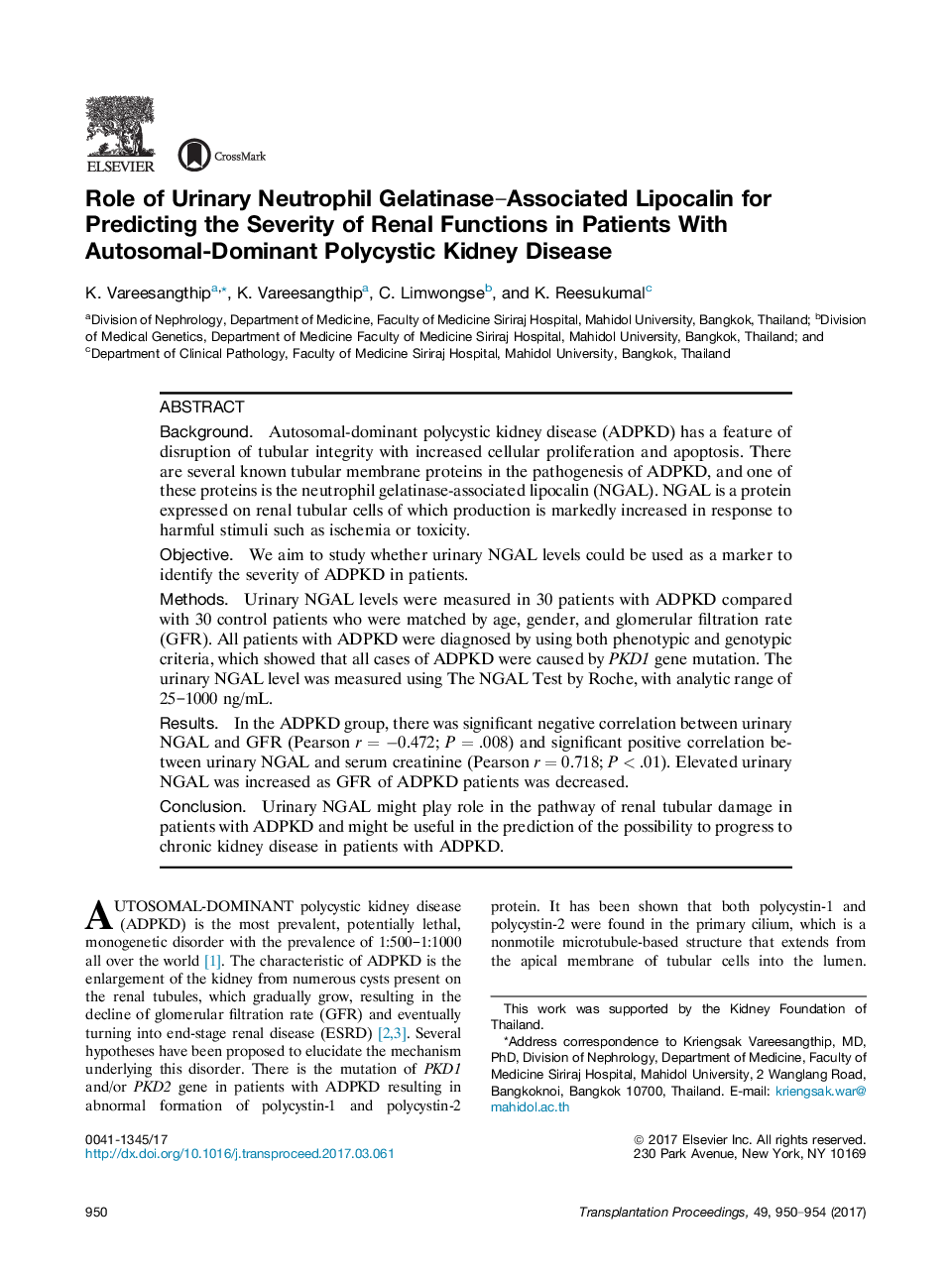| Article ID | Journal | Published Year | Pages | File Type |
|---|---|---|---|---|
| 5728776 | Transplantation Proceedings | 2017 | 5 Pages |
BackgroundAutosomal-dominant polycystic kidney disease (ADPKD) has a feature of disruption of tubular integrity with increased cellular proliferation and apoptosis. There are several known tubular membrane proteins in the pathogenesis of ADPKD, and one of these proteins is the neutrophil gelatinase-associated lipocalin (NGAL). NGAL is a protein expressed on renal tubular cells of which production is markedly increased in response to harmful stimuli such as ischemia or toxicity.ObjectiveWe aim to study whether urinary NGAL levels could be used as a marker to identify the severity of ADPKD in patients.MethodsUrinary NGAL levels were measured in 30 patients with ADPKD compared with 30 control patients who were matched by age, gender, and glomerular filtration rate (GFR). All patients with ADPKD were diagnosed by using both phenotypic and genotypic criteria, which showed that all cases of ADPKD were caused by PKD1 gene mutation. The urinary NGAL level was measured using The NGAL Test by Roche, with analytic range of 25-1000 ng/mL.ResultsIn the ADPKD group, there was significant negative correlation between urinary NGAL and GFR (Pearson r = â0.472; P = .008) and significant positive correlation between urinary NGAL and serum creatinine (Pearson r = 0.718; P < .01). Elevated urinary NGAL was increased as GFR of ADPKD patients was decreased.ConclusionUrinary NGAL might play role in the pathway of renal tubular damage in patients with ADPKD and might be useful in the prediction of the possibility to progress to chronic kidney disease in patients with ADPKD.
